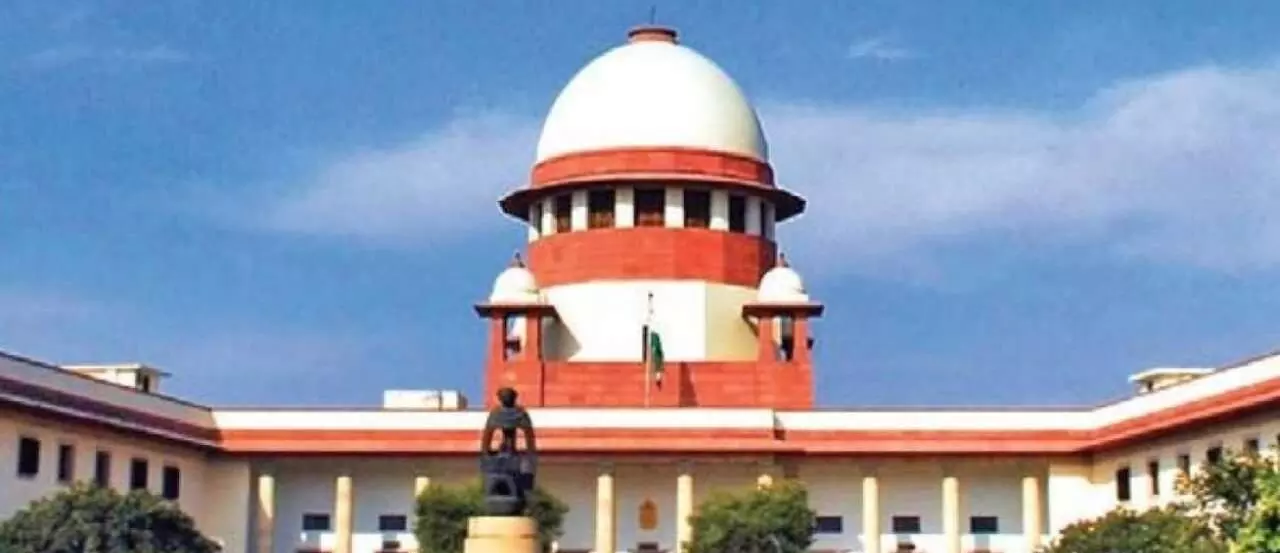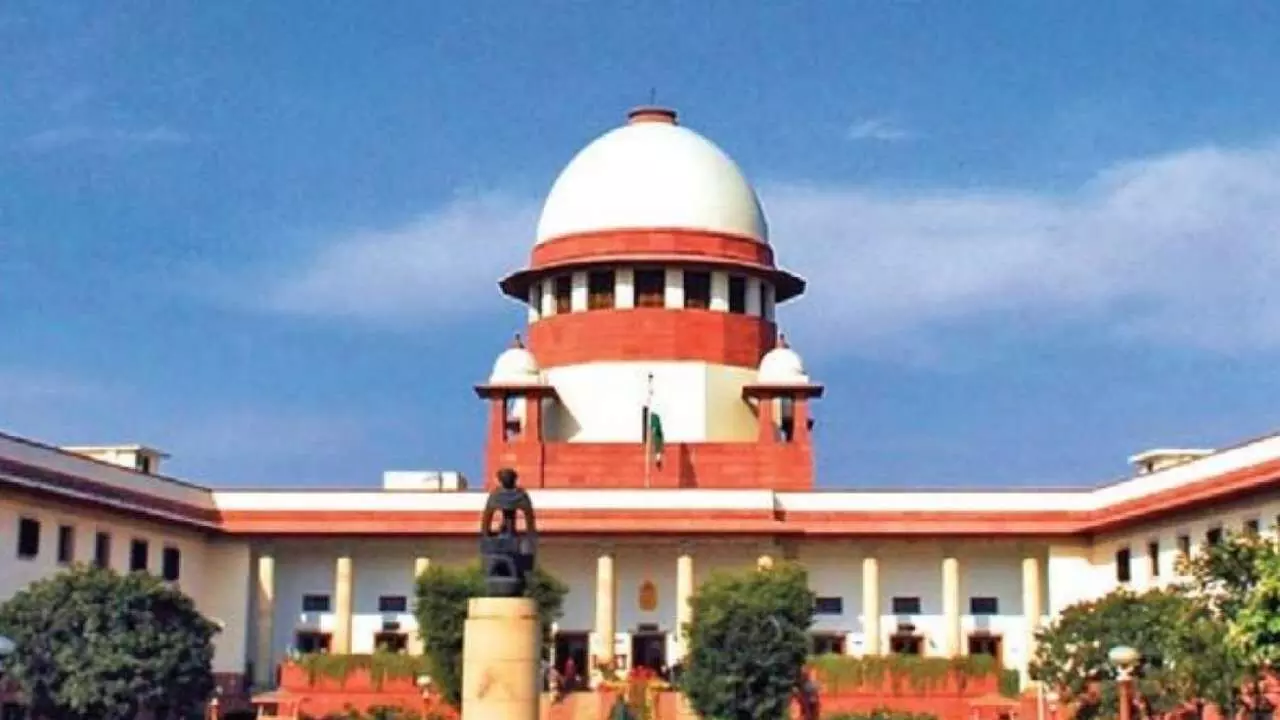
Same-sex marriage: Will the court give the last word?
text_fieldsAfter considering the demand to legalise same-sex marriage, a three-judge bench of the Supreme Court on Monday referred the case to a five-judge constitution bench to be headed by the Chief Justice which will hear the case on April 18. The suggestion of some petitioners to telecast the court proceedings live, was accepted by the bench headed by Chief Justice D.YChandrachud and comprising P.S. Narasimha, and J.B. Pardiwala - reason for the case to possibly get more public attention than usual. The current verdict from the Supreme Court came after it considered the various petitions filed in different high courts and combining them into one. The prayer in the petitions was that as a logical implication of the 2018 decriminalising homosexuality, two persons of the same sex should be allowed also to marry each other. In the process, the Supreme Court sent a notice to the Central Government and considered its response submitted in its affidavit. The petitions in common sought recognition of same-sex marriages under the Hindu Marriage Act, the Special Marriage Act and the Foreign Marriage Act. Their argument is that since the Supreme Court recognized homosexuality in 2018, such consensual relationships should be extended to marriage as a logical corollary. A contention raised by Abhijit-Iyer Mitra, who filed a petition in 2020, invoked the letter used in the Hindu Marriage Act which does not distinguish between homosexual and heterosexual marriages. That is, the Act does not that the marriage is between a man and a woman but between two Hindu persons, and it means that it can also be between those of the same sex. Other petitioners also point out that other secular marriage laws are similar. In the Special Marriage Act, the terms husband and wife are not mentioned where the conditions for marriage are dealt with. It is argued that even though the age of marriage is 21 for a man and 18 for a woman, it need not necessarily be between man and woman; it can as well be between two men or women as well.
The 2018 decision to decriminalise homosexuality itself has drawn much criticism. The government has pointed out in the latest affidavit that the court order has only decriminalise homosexuality(i.e not punishable) but has not legalised it. Marriage is the institutionalization of the instinctive relationships that the human race is heir to with genetic gender characteristics. However, as an exception in the modern world, a body of opinion held by large section has emerged which questions the exclusive tradition of heterosexual marriage - and its advocates - in the name of modernity and the theory of gender freedom and equality. It may be difficult for the court to logically evaluate the government's affidavit that same-sex marriage is against Indian ethos. However, it is also true that thirty-two countries have legalized same-sex marriage. In 10 countries, this has been implemented through court rulings, while in 22 other countries, it came through legislation. But put together they form only 17 percent of the world's population. The apex court had repealed Section 377 of the Indian Penal Code, which criminalized homosexuality, based on an interpretation within the scope of personal liberty. But it does not recognise same sex marriage per se. The government had also pointed out that same-sex marriage would cause great havoc in the society. The Centre also argued that when the verdict decriminalizing homosexuality is extended to the point where it is extended to form a basis for marriage, it is a matter within the legislative scope of the Parliament. Moreover, it touches on many levels, including family relations and inheritance laws, which are covered by different personal laws. All of this will not come within the scope of the court when it considers the sole question about the permissibility of same-sex marriage.
A ban on same-sex marriage does not violate, contrary to what many petitioners have alleged, the Constitutional principle of equality as long as it does not discriminate solely on the basis of sex, argued the Centre. Given that basically marriage is clearly a relationship between a man and a woman, it begs the question whether there is a need to give any other relationship the cloak of marriage. In relation to marriage, multifarious factors of law and life will arise such as wife, husband, children, ex-wife, ex-husband, other sexual relations, inheritance, adoption etc. It needs to be considered whether it is the right approach for the court to examine that level of lawmaking on its own. The Constitution Bench will now have to intervene in an area that should ideally be left to the legislatures. It is a matter to wait and watch until the judgement whether the court will arrive at a decision considering the multi-layered equations of society and the different domains under legislation.





















